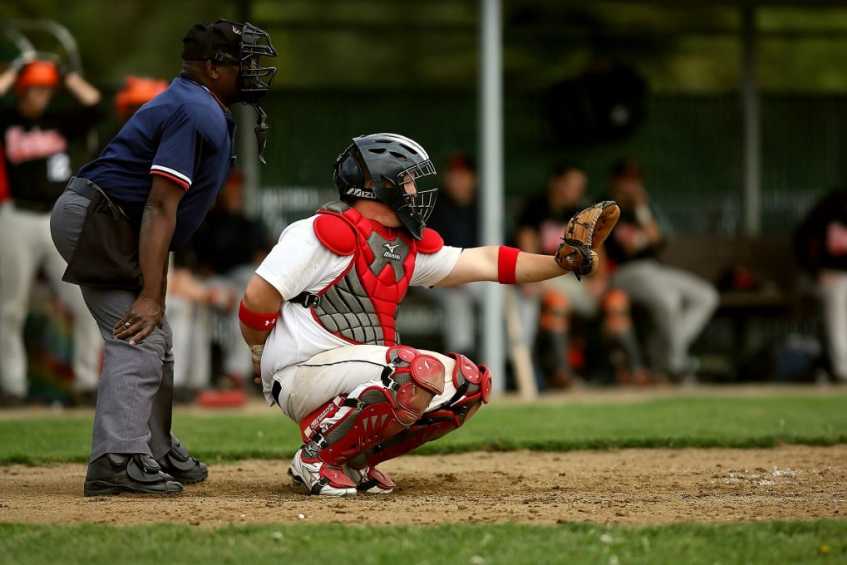
Welcome, baseball enthusiasts, to this detailed guide aimed at empowering you to become the most successful Little League coach you can be. Let's embark on a journey exploring the joys and challenges of coaching youth baseball.
As someone deeply passionate about the game, I can tell you firsthand that coaching little league is both an exhilarating and demanding adventure. The sight of little leaguers honing their skills, grinning widely as they cross home plate, makes all the hard work worthwhile. But becoming a stellar coach involves more than just knowledge of the sport. This role requires patience, dedication, and a strategic approach—our focus here today.
This guide will provide an in-depth little league coaching strategy, offering tips and insights into making the most of your youth baseball coaching experience. Whether you're a new coach wondering about your first practice or a seasoned coach looking for additional insights, you're in the right place. So, grab your baseball bat, put on your cap, and let's step up to the plate.

Embarking on your journey as a Little League coach means stepping into a role that's more complex and nuanced than it may appear at first glance. Coaching youth baseball doesn't merely involve teaching kids the basics of baseball—it calls for patience, strategic thinking, and the ability to adapt to a wide range of players' skill levels. Above all, you'll need a love for the game and a commitment to nurturing that same passion in young players.
Before diving in, you may wonder what qualifications you need to coach Little League. While there's no specific educational requirement, having a sound knowledge of baseball fundamentals is essential. Additionally, you'll benefit from a basic understanding of child psychology and development, which will help you communicate effectively with players of different age groups.
To become a Little League coach, you don't necessarily need years of coaching experience under your belt. However, you must be willing to learn and grow alongside your team. Start by volunteering as an assistant coach or taking up a coaching course tailored for youth baseball. Such hands-on experiences will give you a better understanding of what it takes to manage a team and devise effective practice plans.
For the new coach, the initial steps into Little League coaching may seem daunting. It's a world where strategic decisions can mean the difference between a winning and a losing season. You might often find yourself in situations where you have to accommodate a range of playing abilities within a single team. You'll be dealing with a few seasoned players, several multi-sport athletes, and some kids just starting their baseball journey. However, it's this very diversity that makes the role challenging and fulfilling.
Don't be deterred by the pressure to win. At this level, your main aim should be to instill a love for the game in your players. Winning is great, but it's the lessons learned on the field—teamwork, resilience, and sportsmanship—that truly count.
So, embrace your new role and gear up for an exciting season of Little League baseball. Your passion and dedication will be the compass guiding your team on this incredible journey.
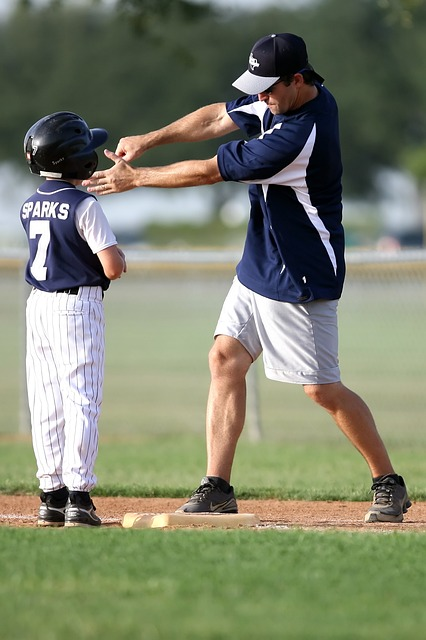
Once you’ve taken the first step into little league coaching, the next milestone is running your first practice. This session is crucial, setting the tone for the rest of the season and establishing your approach as a coach. However, with the right practice plan in hand, you can make it a resounding success.
Firstly, remember that the main aim of the first practice is to make the players comfortable. Young players may be nervous, excited, or unsure about what to expect. As a coach, your task is to put them at ease. Start with a brief introduction and then let the kids introduce themselves. This fosters a sense of camaraderie and helps the young players to get to know each other.
Now, onto structuring your first practice. In Little League baseball, practice time is precious. Efficient practice planning is a cornerstone of your coaching strategy. Here are a few steps to guide you:
Assessing Skills: Begin your first practice by evaluating the players' skill levels. Start with the basics - throwing, catching, and batting. Have them play catch, observe their batting during a simple batting practice, and check their fielding skills.
Focus on Fundamentals: Emphasize the importance of basic skills. Remember, practice makes perfect. Dedicate ample time for the players to work on their throwing and catching, ground ball and fly ball techniques, and batting skills.
Situational Drills: Once you've covered the basics, introduce the players to situational drills. Simple scenarios like tagging up on a fly ball, or executing a double play can be both fun and educational.
Practice Game: End the practice with a short scrimmage. This allows the players to put their newly learned skills into action and gives you a chance to observe their understanding of the game.
Debrief: Finally, have a short debriefing session. Highlight the good plays, discuss areas of improvement, and encourage players to share their experiences and thoughts.
Remember, this is your first practice, and it sets the tone for your team's season. Try to make it as engaging and informative as possible. Keep the atmosphere positive, maintain a balance between learning and fun, and most importantly, ensure every player feels valued and included.
At the end of the day, the kids should go home excited about the upcoming season, eager to come back for the next practice, and most importantly, proud to be a part of the team. Remember, you're not just coaching youth baseball, you're creating experiences that these kids will remember for a lifetime.
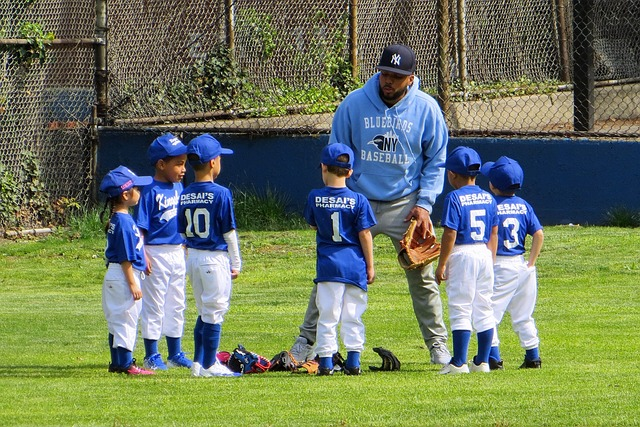
Now that we've covered how to manage your first practice, let's delve into making your Little League team better. This is a multi-faceted task that requires you, as the league coach, to take into account several aspects from individual player development to team dynamics and strategies.
Individual Skills: As a youth baseball coach, your primary responsibility is to help your players develop their individual skills. This ranges from mastering the basics such as throwing, catching, and hitting, to advanced techniques like stealing bases, sliding, and understanding different positions on the field. Regular practice and personalized feedback will help players improve their individual skills.
Mental Toughness: Baseball is as much a mental game as it is a physical one. Instill the importance of concentration, patience, and resilience in your players. Teach them to manage their emotions during the game, handle pressure, and bounce back from failures.
Understanding of the Game: A good baseball player isn't just skilled physically, but also has a sound understanding of the game. Teach your team about the rules of baseball, game strategy, and the role of different positions. This understanding will help them make better decisions on the field.
Building Teamwork: Baseball is a team sport, and a successful Little League team is one that plays cohesively. Foster a sense of camaraderie and mutual respect among the players. Encourage them to communicate effectively, both on and off the field.
Role Recognition: Each player has a unique role in the team. Some might be strong hitters, while others are exceptional fielders. Recognize these roles and help each player understand their importance to the team.
Fair Play and Sportsmanship: Instill the values of fair play and sportsmanship in your team. Winning is important, but not at the cost of ethics. Ensure that your players respect their opponents, the umpires, and the game itself.
Mastering the Basics: A strong little league team excels in the fundamentals. This includes effective fielding, disciplined batting, and smart base running. Ensure that your team has a firm grasp on these basic skills.
Strategizing: Depending on your team's strengths and weaknesses, develop a game strategy. This could involve focusing on defense, playing small ball, or utilizing the power of your hitters.
Adapting: A successful Little League coach is one who can adapt the team's strategy based on the situation of the game. Teach your players to be flexible and adjust to the changing dynamics of the game.
In conclusion, the key to making your Little League team better lies in holistic development of the players, fostering a strong team spirit, and having a flexible game strategy. Remember, as a coach, you play a vital role in shaping your young players' approach to the game, and to sportsmanship in general. Be a positive role model, mentor, and guide for them, and the success of your Little League team will follow.
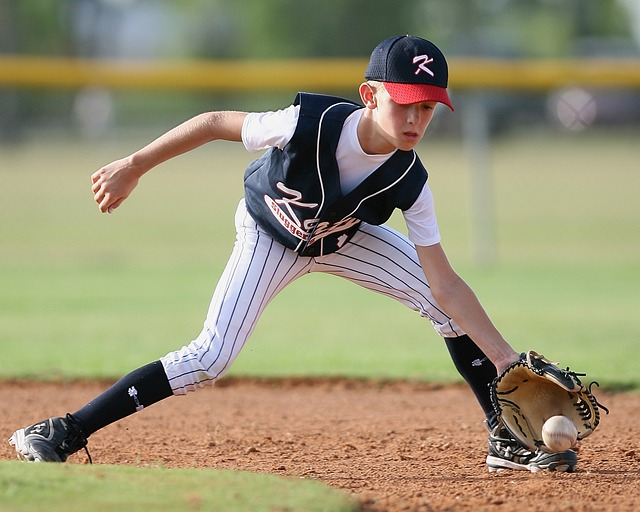
For those who are new to the field, wondering "how do I start coaching baseball?", the answer can be both exciting and daunting. Remember, as a Little League coach, you are in a position to influence and shape the attitudes, skills, and love of the game for your young players.
Firstly, educating yourself is the initial step towards becoming a league coach. Reading books about coaching youth baseball, attending coaching clinics, and watching tutorial videos online are great places to start. More importantly, draw from your own experiences as a player, if applicable, and from your observations of the game. Understand the little league rules and get a feel for the team you will be coaching.
Next, consider your approach to coaching. Every coach has their unique style, but the most successful Little League coaches often have a few things in common.
Your players look up to you. They will mirror your attitude, your dedication, your respect for the rules, and your sportsmanship. Be mindful of your behavior both on and off the field. Always promote a positive attitude, fair play, and respect for all – teammates, opponents, umpires, and coaches from other teams.
At the end of the day, these are kids playing a game. If they're not having fun, something's wrong. Include fun drills in your practice plans, give everyone a chance to play different positions, and always celebrate the small victories - a well-executed double play, a great catch, a brave at-bat against a tough pitcher. This isn't just about winning games, it's about fostering a love for the game of baseball.
Every practice is an opportunity to teach your players something new. Whether it's showing them how to hold a baseball bat correctly, how to field a ground ball, or how to slide into base, take the time to teach these skills. Be patient and supportive. Remember, mistakes are just opportunities to learn.
Baseball is a team sport. No player can win a game on their own. Help your players understand that everyone has a role to play in the team's success, and that they should always support each other, in good times and bad.
As a coach, clear communication is key. Explain your expectations, the team's goals, and the reasons behind your decisions. Listen to your players' concerns, answer their questions, and always be honest and respectful.
In conclusion, being a successful Little League coach isn't about winning every game. It's about teaching your players how to play baseball, how to work as a team, and how to have fun doing it. It's about helping your players develop a love for the game that will last a lifetime. And who knows? You might just inspire one of your players to become a Little League coach themselves someday.
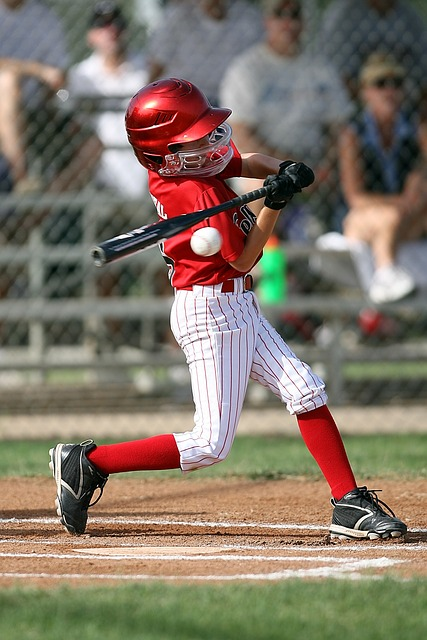
As a Little League coach, one of your fundamental responsibilities is to build your team. Building a league team involves not only picking the right players for your team but also developing their skills and fostering team spirit.
Let's start with the player selection process. It might be tempting to select only the best players for your team, but remember that this is youth baseball, and one of your primary responsibilities is to teach kids how to play baseball. As a coach, your mission should be to help all kids improve their skills and develop a love for the game, regardless of their current ability level.
When building your team, ensure there is a balanced mix of skills and experience. Consider the following points:
A well-rounded team will have players with a variety of skills. Some players will naturally excel at hitting, others at pitching, and others still at fielding. When you have a mix of these skills on your team, you can assign players to the positions where they will be most effective and where they can contribute the most to the team's success.
Remember that kids mature at different rates. Some may be physically ready to play more challenging positions like pitcher or catcher, while others may not be. Similarly, some kids may have the mental maturity to handle the pressures of a big game, while others may not. When selecting your team, keep the age and maturity of the players in mind.
Skills and physical ability are important, but so are attitude and sportsmanship. Look for players who show a positive attitude, who are respectful of their teammates and opponents, and who show good sportsmanship no matter the outcome of the game.
Once you have your team selected, you should consider how you're going to develop their skills. Regular practice is essential, of course, but it's equally important to make those practices effective and enjoyable. Remember, your young players will learn more, and be more likely to stick with it, if they're having fun. So make sure your practice plans include a mix of drills to develop skills, scrimmages to apply those skills, and games or contests just for fun.
In conclusion, the art of building a successful Little League team lies in finding a balance. Balance in the selection of your players, in the skills and experience of your team, and in the way you run your practices. Keep these factors in mind as you build your Little League team, and you'll be well on your way to a successful season.
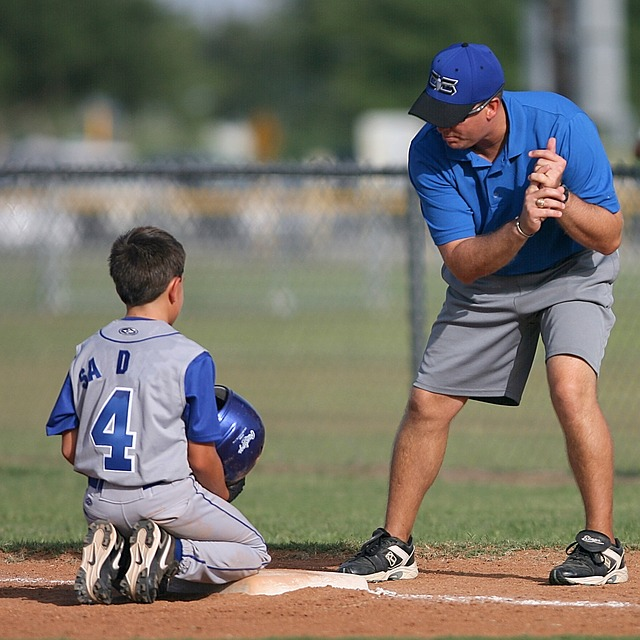
Now that we have our little league team assembled, the focus shifts to the next big component of the little league coaching strategy: practice. Practice is the foundation upon which the success of the team is built. It is the platform where the team can fine-tune their skills, learn new strategies, and build team spirit. The phrase "practice makes perfect" is not an overstatement, especially in the context of coaching youth baseball.
Before we delve into the specific drills, let's first discuss how to structure a youth baseball practice. The first practice is always the most important as it sets the tone for the rest of the season. Therefore, you as a league coach need to have a well-thought-out practice plan for your first practice. A good practice plan should include:
Warm-Up: This is crucial to prevent injuries and to prepare the players mentally and physically for the session. Simple exercises like stretching and jogging can serve as good warm-ups.
Skill Drills: Allocate a good chunk of your practice time to skill drills. These drills are designed to develop specific skills like batting, fielding, and pitching.
Game-Like Scenarios: Practicing in game-like conditions allows your players to apply the skills they've learned in a more practical context.
Cool Down and Review: Always end the practice with a cool down period and a brief review of what was covered during the session.
Here are some practice drills that can help develop your young players' skills:
Batting Practice: Every practice should include a batting practice. This not only helps your players improve their hitting but also gives your pitchers some pitching practice. One effective drill is to divide your team into groups and have each group practice hitting off a tee, hitting a moving ball, and bunting.
Fielding Drills: Fielding is equally important as batting in baseball. One common fielding drill is the ground ball drill, where players practice fielding balls hit directly at them, to their right, and to their left. Another is the pop fly drill, which helps players practice catching high balls.
Pitching Drills: Pitching drills are essential, especially if your team is in an age group where pitchers throw from the mound. The "bullseye" drill, where pitchers aim for specific targets, can help pitchers improve their accuracy.
Base Running Drills: Base running is often overlooked at practice, but it is a vital part of the game. Drills that focus on running from home to first, rounding bases, and sliding can be beneficial.
Team Drills: These drills involve the entire team and help improve communication and coordination among players. An example of a team drill is a double play drill, where players practice catching a ground ball, throwing it to second base, and then throwing it to first.
Remember, the aim of practice is not only to develop the skills of your players but also to make them enjoy the game. So, make your practice sessions engaging and fun. And always, always foster a positive attitude among your players. Remember, they are just kids, and at the end of the day, the goal is for them to have fun and develop a lifelong love for baseball.

Having a game day strategy is a crucial part of a successful little league coach's playbook. As a youth baseball coach, you must be prepared to make real-time decisions that can significantly affect your little league team's performance during games. In this section, we'll discuss a few essential game day strategies to consider.
Understanding your opposition can help you strategize effectively for game day. Try to understand the strengths and weaknesses of the other team and plan your team's actions accordingly. If possible, observe the other teams' games to familiarize yourself with their tactics and the skill level of their players. For instance, if their pitcher tends to throw more balls than strikes, instruct your players to be patient at the plate.
When it comes to the batting order, consider the strengths of your players. A common approach is to have one of your best hitters lead off to get a good start for the team. This player should have a good on-base percentage. The player batting second should be good at moving players around the bases - someone who can bunt or hit to the opposite field. Your third and fourth batters, often called the "heart of the lineup", should be your strongest hitters.
Just like the batting order, defensive placement is equally crucial. It's important to understand that in little league, you'll often be dealing with varying skill levels. Place your strongest defensive players where balls are most likely to be hit. For most little league teams, these positions are often first base, pitcher, and shortstop. However, do rotate players to different positions from time to time for their overall development.
On game day, unexpected situations can often arise. It's essential to remain calm and composed during these situations and make the best decision for the team. Always have a backup plan in case one of your key players is unable to play due to injury or any other reason.
Remember, the primary goal of little league baseball is for the kids to have fun and enjoy the game. Even on game day, maintain a positive and encouraging attitude. Be a role model for good sportsmanship, and encourage the same from your players, regardless of the outcome of the game.
In conclusion, being a successful little league coach is about much more than understanding baseball. It's about being a good role model, creating a positive and fun environment, and helping young players develop their skills and a love for the game. With careful planning, the right strategy, and a positive attitude, you're well on your way to creating a fantastic season for your little league team.

Coaching youth baseball is undeniably a challenging task. It requires a comprehensive understanding of the sport, impeccable leadership qualities, a deep well of patience, and a persistent positive attitude. A league coach is not just an instructor but also a role model for young players, someone who not only teaches them to play baseball but also instills in them invaluable life lessons of teamwork, sportsmanship, dedication, and resilience.
But above all the challenges and the painstaking task of implementing little league coaching strategies, the reward that comes with being a little league coach is profound and unparalleled. Seeing your players' growth and development, both as baseball players and as individuals, is truly gratifying. Watching them master a new skill, improve their batting average, make a double play, or even just witnessing them having fun on the field, is a testament to your hard work as a league coach.
So whether you're a new coach starting your first practice, or an experienced youth baseball coach looking to refine your coaching strategies, remember that the most vital strategy is to ensure that your players are learning, improving, and most importantly, having fun. Because at the end of the day, little league is about much more than just the game of baseball. It's about creating memories, building character, and fostering a love for the sport that could last a lifetime.
Keep these strategies and tips in mind as you navigate your journey as a little league coach. Embrace the opportunity to make a lasting impact on the lives of your players. Because when the dust of the game settles, it isn't the wins or losses that your players will remember most, but the lessons they learned, the fun they had, and the love for the game that you as their coach, helped kindle.
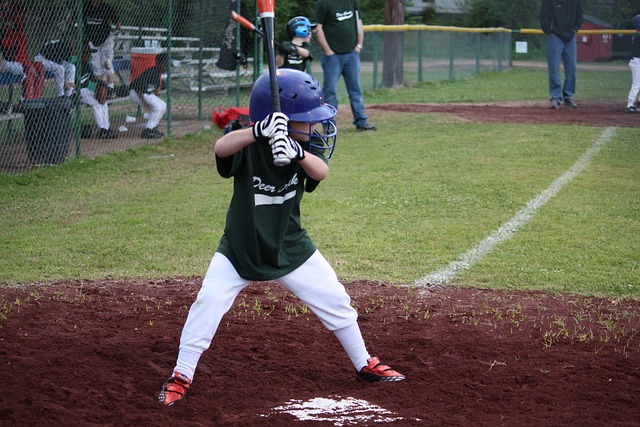
After playing major league baseball, Jack Perconte has taught baseball and softball since 1988 and offered valuable coaching training too. He has helped numerous youth players reach their potential, as well as having helped parents and coaches navigate their way through the challenging world of youth sports. Jack is one of the leading authorities in the areas of youth baseball training and coaching training advice.
All Jack Perconte articles are used with copyright permission.There are 0 comments on "Little League Coaching Strategy for Youth Baseball To Consider"
chandler allen says:
"Hi my name is chandler, i’ve enjoyed..."
On Wanting to tryout for summer ball. as an 18 year old
david graham says:
"With no current MLB team in Canada,..."
On With no current MLB team in
Charles Chavez says:
"To All Coaches: Do you have13U or..."
On Looking for Games